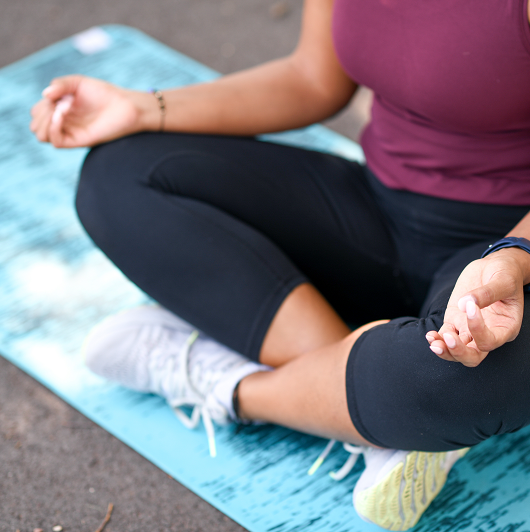When to Take a Break from Social Media

December 23, 2022
Do you always have your phone in hand, eyes glued to the screen? You may be spending too much time on your social media feeds.
Many think that social-media connections with friends are good for you. In actuality, social-media usage may increase the risk of depression and/or anxiety.
“Many people joined social media for light interactions, but they get sucked in deeper because it is available 24/7,” says psychiatrist Ram Mahato, M.D. “You may not expect that reading others’ posts would cause such strong reactions.”
Signs That You May Need a Social Media Break
Could you benefit from a social media detox? If you identify with several of these habits, the answer may be yes:
- You post frequently, then check your posts often to track your “likes.”
- You get upset if too few people “like” or comment on your posts.
- You’re overly concerned with getting more followers.
- You feel obligated to post frequently, which may be stressful.
- Other people’s posts make you question your physique, career, vacation plans or social activities.
- Certain posts make you angry or frustrated, or they provoke you into online arguments.
- Your feed makes it seem like life is a contest, and yours isn’t exciting enough.
- You scroll through your feed every morning before getting out of bed.
- You spend the majority of your time on social media throughout the day.
- You look at your phone right before bed and keep it on your nightstand.
- You skip chores or procrastinate on work projects to look at social media.
- You find yourself mindlessly scrolling several times daily, even if you didn’t intend to.
- You check your phone during dinners, parties and other in-person social activities with friends.
- You’re unhappy or uncomfortable in “dead zones” where you can’t look at social media.
- You can’t leave the house without your phone and panic if you forget it.
- You have to post about an activity before you can enjoy it.
- Friends and family may comment about the amount of time you’re on your device.
- You’ve begun feeling more anxious or depressed.
- You’ve started having trouble falling asleep or staying asleep.
How to take a social media break
Unplugging from your social-media accounts may be restorative. A one-week social-media break may significantly reduce anxiety and depression, according to researchers.
Your social media break doesn’t have to be all or nothing. Some people scale back their social-media usage, while others unplug periodically.
To scale back your social media usage:
- Limit yourself to 30 minutes of scrolling daily. Many smartphones provide a detailed report of your screen time. You can also download an app to help you track and limit your social media use, like Social Fever or Moment.
- Look at social media at the same time every day... and only then.
- Turn off social media notifications, so you aren’t tempted to pick up your phone.
- Keep your phone in another room or in a drawer, not in plain sight.
- Call friends or make plans to get together instead of “liking” their posts.
- Consider making one day a week social-media-free, then make fun plans.
To unplug from social media for a while:
- Choose to avoid one or more social media apps for a set period of time.
- Tell close friends about your break, if they’ll worry about your absence.
- Delete social media apps from your smartphone.
- Leave your phone out of the bedroom; buy an alarm clock, if need be.
- Fill new-found free time with hobbies, exercise, phone calls and in-person social connections.
“When you decide to return to social media, remember that you easily survived without it,” says Dr. Mahato. “Try adopting some of your temporary habits full-time – you may be happier.”
Next Steps & Resources:
- Meet our source: Ram Mahato, M.D.
- To make an appointment with Dr. Mahato, or a doctor near you, call 800-822-8905 or visit our website.
The material provided through HealthU is intended to be used as general information only and should not replace the advice of your physician. Always consult your physician for individual care.






